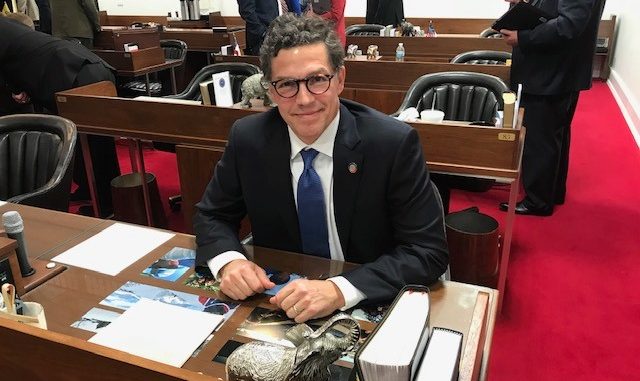
RALEIGH — A bill that will prohibit medical facilities from banning family members from visiting their loved ones was passed by the Senate last week.
Senate Bill 730 is titled the No Patient Left Alone Act and passed by a margin of 44-4. The only no votes came from Democratic Sens. Jeff Jackson (Mecklenburg), Natasha Marcus (Mecklenburg), Wiley Nickel (Wake) and Terry Van Duyn (Buncombe).
State Sen. Warren Daniel (R-Burke) is the primary sponsor of the bill, which will “ensure visitation rights for hospital patients during a disaster declaration or public health emergency.” The bill would permit hospitalized patients to designate one visitor to be allowed access to that patient’s room during time periods that follow hospital visitation rules.
“I’ve heard devastating stories of patients young and old who, in the final hours of their lives, have not been able to say goodbye to the people they love, or to feel the loving comfort of their lifelong partner,” said Daniel in a statement. “Every patient deserves the right to spend their last days in this world with a family member by their side. We have to prevent this tragedy from happening again in our North Carolina hospitals.”
The bill was first filed in mid-May after reports of families being banned from seeing dying loved ones due to COVID-19 measures prohibiting visitations. The bill saw swift movement through the Senate in early June and was the topic of a legislative committee hearing on June 17 attended by N.C. Dept. of Health and Human Services Secretary Mandy Cohen.
State Rep. Perrin Jones (R-Pitt), who is also a medical doctor, was one of the lawmakers who questioned Cohen during a committee meeting about N.C. Dept. of Health and Human Services policies separating families from a hospitalized or dying loved one. Cohen was also asked about the Cooper administration’s failure to prevent outbreaks in nursing homes. Cohen failed to give a clear response on either issue.
During his questioning of Cohen, Jones spoke about a now month-old letter that Cohen and NCDHHS had yet to respond to concerning an elderly couple in their 80s living in two wings of the same facility. The couple has been married for over 50 years. Jones said that the couple had been separated and were unable to see each other for 13 weeks because of NCDHHS regulations.
“The husband voiced to his caregiver a desire to ‘hurry this up and die’ because he could not see or touch his wife,” said Jones, adding that the man had been clinically depressed due to lack of contact with his wife since the start of COVID-19. He also described that when they were allowed to see each other, they were not allowed to touch because they were separated by a divider and the husband wept for 30 minutes before being able to speak to his wife.
“This couple has been deprived of a quarter of a year together as they near the end of their lives,” said Jones. “NCDHHS regulations are responsible for not only for higher concentrations of COVID-19 in congregate facilities, they are causing significant heartbreak for their residents.”
Jones chastised NCDHHS for separating families by saying “apparently as a state, we have moved beyond saying that certain occupations are essential and non-essential.”
“We are now witnessing NCDHHS regulations that are tearing asunder the most essential bonds in human life,” Jones said. “Bonds that have existed between people for four, five, even six decades.”
Jones then asked Cohen what she planned to do to rectify the “inhumane consequences of our state’s public health policy.” Cohen responded that she “appreciated” Jones bringing that story to the committee and called it “unbelievably heartbreaking.” She claimed that some of the rules responsible for these separations were “set by the federal government” but did not elaborate.
According to the NCDHHS website’s hospital guidance page, a hospital or care facility should “Limit visitors to the facility to only those essential for the patient’s physical or emotional well-being and care, for example, care partners.” It also says that providers need to “consider patient rights under the Americans with Disabilities Act and the Rehabilitation Act when considering caregiver visitation.”
The CDC guidance calls for limiting visitors to only “those essential for the patient’s physical or emotional well-being and care,” but there is no mention for banning them.
Cohen said what NCDHHS is “trying to do now” is to move to “proactive testing” to find a way to ease restrictions in settings and cases of separation mentioned by Perrin.
Jones responded that he appreciated the efforts of Cohen and NCDHHS, but that this was an issue that cannot be put off for three or four weeks via a panel or committee.
“This is an issue that needs to be addressed now,” said Jones.
The N.C. House is expected to take up the bill sometime this week.


